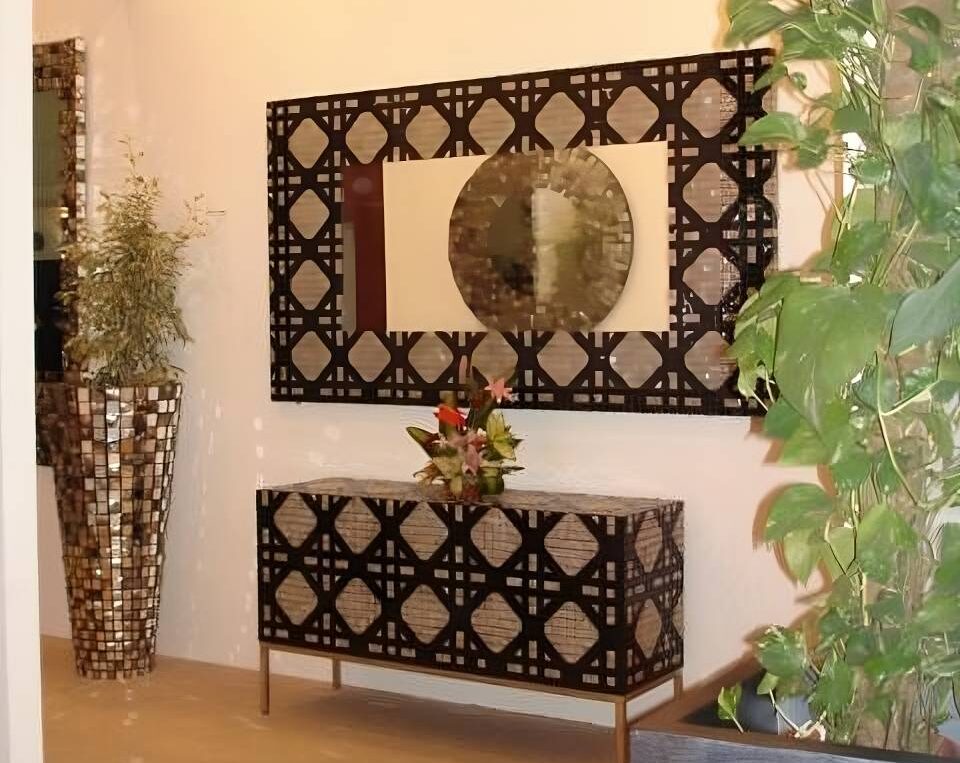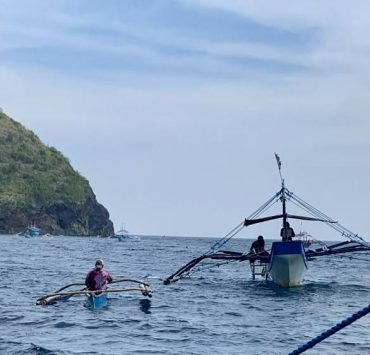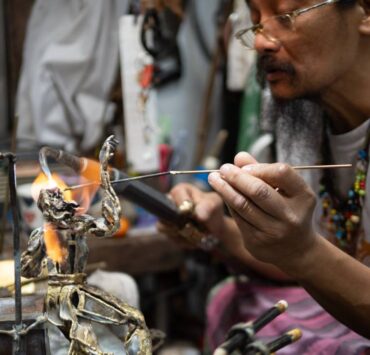From decorative mirrors to online pantry

More than just enhancing light and reflection in a space, decorative mirrors offer a stylish and cost-effective alternative to expensive artwork. These functional pieces can serve as captivating works of art in their own right.
Designer and entrepreneur Rene Alcala has embraced this concept with his mosaic mirrors under the Domicillo brand. Recognizing the potential for a more affordable yet impactful solution, Alcala discovered the beauty and versatility of mosaic mirrors.
The mirrors are embellished with a variety of local shells, including black-lipped pearl oysters, mother of pearl, hammer, melo melo, and paua. Each species produces its unique iridescent colors. “Each one sparkles with its own character,” says Alcala. The shells are cut into tiles and arranged in intricate mosaic patterns.
Finding their way into posh residences and hotels, Domicillo mirrors have become conversation pieces. They are found at pop-up bazaars, Rustan’s Filipiniana department, and through social media.
Accidental designer
Designing mirrors was far from Alcala’s original dream. As a tourism major at the University of Sto. Tomas, he stumbled upon the opportunity to work for a small company involved in manpower, seminars, pawnshop, and handicrafts export. Despite excelling in marketing and exports, he grew bored and decided to start his business in the early 1990s.
Alcala’s export company, Peter and Paul, initially produced tin products such as watering cans, tubs, and small cans with unique patterns. However, Chinese manufacturers eventually copied his designs and undercut his prices due to their larger production scale. Undeterred, he shifted to artisanal paper products such as draft books and journals, which he exported to Germany. Unfortunately, Chinese manufacturers imitated him once again.
Finally, he found success with metal products, particularly votive candles and small containers for the table. His company supplied major retailers such as Pottery Barn, Crate and Barrel, and Illuminations.
“I became a designer by accident. I relied on research and imagination to inspire me,” he says. Alcala expressed his gratitude to his designer friends who shared their insights. “I felt like I was one of them,” he says.
Exporter Ed Oliveros was impressed by Alcala’s refined aesthetics and recruited him into the Wood Tag group in the early 1990s. A precursor to the design team Movement 8, Wood Tag brought together some of the country’s top designers.
Alcala developed the mosaic mirrors in 2000 to break free from the monotony of producing votive candle holders. Seeking novelty and inspiration, he was drawn to the popularity of Venetian mirrors and their ornamental details. After conducting research, he conceived his version of a decorative mirror using mosaic tiles. This product was more challenging to copy, leading Alcala to focus on mosaic mirrors as he grew weary of constant imitation from Chinese manufacturers.
Impressed by the mirrors’ uniqueness, design consultant and style arbiter Budji Layug invited Alcala to join Movement 8 in 2001. The movement aimed to create contemporary Filipino furniture and accessories that could be showcased at major furniture fairs. Alcala participated in the Movement 8 group show at Salone del Mobile Milano.
Renewed success
During his travels, Alcala observed that his clients often purchased furniture and home accessories from various sources to decorate their living spaces. This inspired him to open a lifestyle store featuring products from his designer and exporter friends.
In 2005, Alcala established the Domicillo home store at the Cliff House in Tagaytay. Customers fondly remembered the store for its distinctive mosaic mirrors. However, competition from furniture stores along the Sta. Rosa highway posed a significant challenge.
During his overseas trips to attend furniture fairs, Alcala found himself drawn to the charm of family-run bed-and-breakfast establishments. Inspired by this concept, he decided to open his own in Tagaytay. He enlisted the design expertise of Layug to create the eight-suite Domicillo hotel. However, once again the fierce competition from other hotels offering lower rates ultimately proved too challenging, and Alcala was forced to sell the property.
Today, Alcala, along with business partner Leo Tiopes, has found renewed success with Domicillo Selections, an on-site marketplace showcasing a curated selection of lifestyle products. The store features an array of Filipino design talent, including Ugu Bigyan’s pottery, Mia Lauchengco’s So True Naturals bathroom products, accessories by Kenneth Cobonpue, Joyce Makitalo’s jewelry, and bags from Beatriz.
The team recently expanded its reach by launching thepantry.com.ph, a virtual store dedicated to Filipino food products. The online platform offers a wide variety of longganisa sausages sourced from Baguio, Cabanatuan, Calumpit, Taal, Aklan, Bacolod, Vigan, and Alaminos. Customers can also find comfort food staples such as tuyo, tinapa, bangus, and adobo flakes. Alcala’s modest kitchen contributes achara and other delectable pickled items to the selection.
His dedication to promoting Filipino artistry is evident in every endeavor. From humble beginnings with tin products to an online Pinoy comfort food store, Alcala has consistently defied expectations and carved a unique niche in the design world.

















